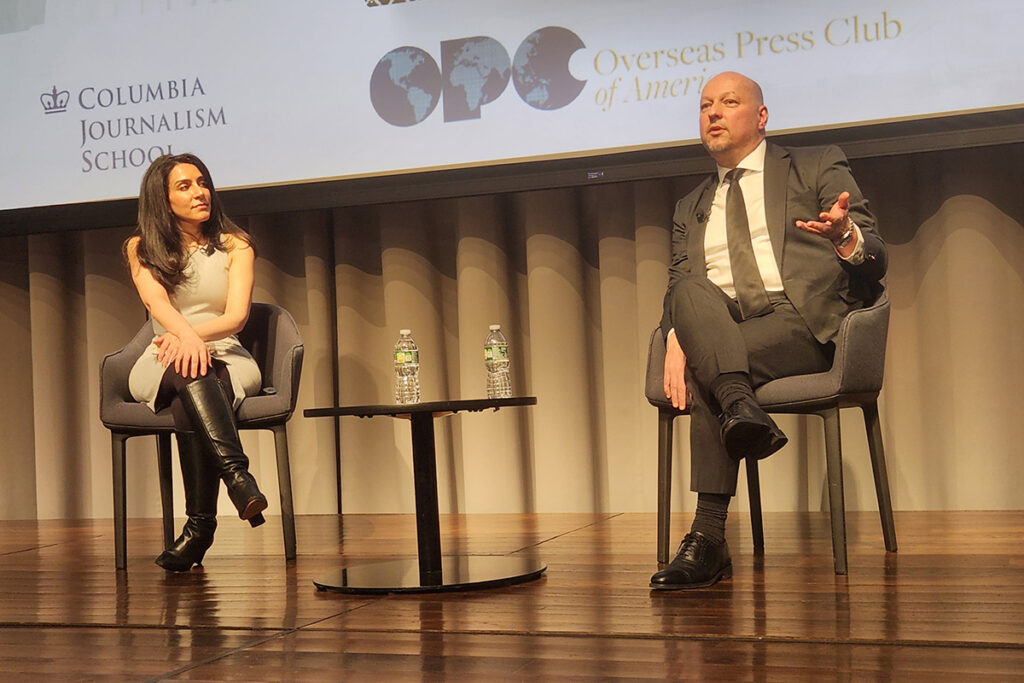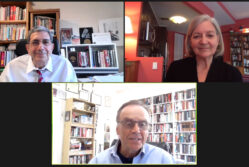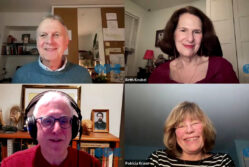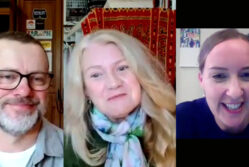Archive Event Highlight

Author Yaroslav Trofimov Discusses Need for ‘Humanity’ in Covering Russia’s Invasion and Ukraine’s War of Independence
by Chad Bouchard
On Jan. 24, author Yaroslav Trofimov, the chief foreign-affairs correspondent for The Wall Street Journal, told a capacity crowd at Columbia University’s Simon and June Li Center for Global Journalism, an event co-sponsored by the OPC, that reporters working in conflict zones should not be so distracted by geopolitics that they neglect humanity in their work.
Trofimov has reported from on the ground in Ukraine since Russia invaded in February 2022. His book, Our Enemies Will Vanish: The Russian Invasion and Ukraine’s War of Independence, chronicles key moments of the war, analyzing how Ukrainian military and civilians were able to fend off Russia’s disproportionate military might, while also examining the human costs of the war.
Trofimov was interviewed by Azmat Khan, an OPC vice president who heads the Simon and June Li Center at Columbia.
He said to cope with witnessing the aftermath of atrocities, he had to compartmentalize and focus on the work.
“You have this instinct of self-preservation, and you have to process the information. So if you see mangled bodies on the frontline, it’s horrible but you try not to think about it, and you put on a filter and you record what you see,” he said. “But sometimes it was the small moments, the small conversations, that hit you emotionally.”
He described a day reporting at a hospital when he talked to the father of a boy who was in a coma Russian artillery struck the car he and his mother were driving in. He asked the father where the boy’s mother was, and he answered that “well, she’s dead, but we can’t talk about it because maybe [the son] can hear us. And I don’t want him to know about this because he’s got his own problems,” Trofimov recalled the father saying.
“These moments of human interaction, I think, are the ones that really get to you when you’re reporting.”
Khan asked for advice from Trofimov, who grew up in Kyiv and has family ties going back generations, on how journalists can draw from personal and emotional connection to conflicts as an asset, while also managing pitfalls of reporting through a subjective lens.
“The keyword is humanity. Far too often, when we write and think about things, we look at them through a geopolitical prism – national interests, counties, governments – and forget the humanity of all these millions of people who are caught in conflict. And their lives are in many ways similar to our lives and that we can relate to.”
Watch a recording of the discussion via the window below.




